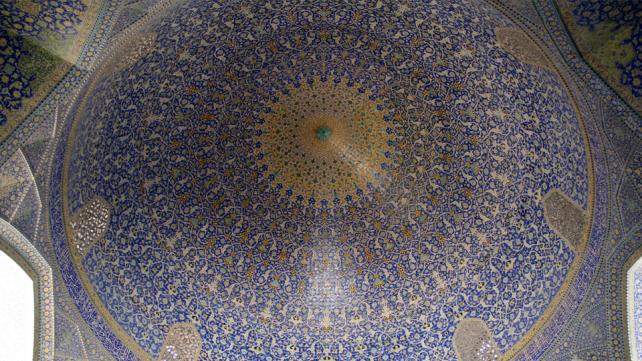
Shia-Sunni violence has been on the rise in the last few years, particularly in Iraq and Pakistan. Every month, it seems, scores of Shias and Sunnis are killed in a vicious tit-for-tat between extremists on both sides. Many of the victims are killed as they pray or are in mosques.
These incidents belie the reality of Shia-Sunni coexistence and cooperation. In Iraq, it is estimated that up to 30 percent of marriages are between Shias and Sunnis; victims of violence between the two groups frequently attend each other's funeral prayers; one group often helps the other's victims after an incident.
This silent majority must come together through dialog to defeat the terrorists who have been responsible for these killings.
Seven reasons why a dialog between Shia and Sunni is needed:
- Theological differences between Shia and Sunni are old and are better left for God to judge, as He knows best and has said in the Quran that He is the final judge of religious disagreements. The killing of Shias or Sunnis will not resolve these disputes.
- The principle of "no compulsion in matters of faith" (Quran 2:256) is not just limited to Muslim-non-Muslim relations. It applies to Muslim interpretations of Islam as well. This instruction of God serves as a guideline for the Muslim community to not impose one's interpretation on others. That is why throughout history, not only have Hanafis and Shafis worked with each other despite differences, but Shias and Sunnis have lived and worked side by side with each other as well.
- When human beings sit down and talk to each other, they learn to respect each other.
- Dialog allows parties to understand each other better by allowing participants to acquire direct knowledge about beliefs instead of relying on propaganda and stereotypical images. (Quran 49:6-12)
- Dialog will isolate the extremist fringe. It is a major sin to kill a human being. Killing a human being is like killing the whole of humanity. By talking to each other, Shias and Sunnis will be able to save lives, which is like saving the whole of humanity. (Quran 5:32)
- Revenge is not justice. Killing in revenge is unjust, inhuman, and un-Islamic. Retribution through the state, which the Quran sanctions via capital punishment does not amount to individuals taking the law in their hands or killing an innocent person in revenge. The call for, "an eye for an eye," does not mean an innocent eye for an innocent eye.
- Even if some Shias and Sunnis consider each other enemies, the Quran asks us to be just even toward one's enemy "O you who believe! Stand out firmly for God, as witnesses to fair dealing, and let not the hatred of others to you make you swerve to wrong and depart from justice. Be just: that is next to Piety: and fear Allah. For Allah is well-acquainted with all that you do." [Quran 5:8]
Some considerations for dialog:
The Shia community like Sunnis is diverse. There are many differences between one Shia group and another. This is why it is important that dialog between Sunnis and Shias becomes a movement and a process throughout society instead of everyone waiting for one high powered dialog to yield some results at the leadership level. Here are some preliminary thoughts on how a dialog between Shias and Sunnis can be beneficial for each side.
Goals of dialog
Although I consider dialog a process that is beneficial to all, it is necessary that everyone involved recognize some of its tangible benefits. The following are a set of achievable goals for Shia-Sunni dialog.
- Developing an agenda of common concerns
- Identifying issues of conflict
- Issuing joint Fatwas against the killings
- Isolating extremists on each side
- Preventing a potential conflict or mediating an existing conflict
- Education to clarify stereotypes about each other
- Setting up joint task forces to deal with outstanding issues
Who should participate in the dialog
- Imams and caretakers of Masjids
- Students of Madrassas
- University students
- National level religious leadership
- Shia and Sunni media persons
- Shia and Sunni businesspersons
Mechanism of dialog
Dialog is a process that should occur at all levels of society. In the 1960s in Pakistan, when Shia- Sunni fights were far less significant, city officers used to convene joint meetings of Shia and Sunni leaders to chalk out Muharram plans so no confusion would result in rioting. These government-arranged dialogs helped keep conflicts at a minimum. Considering the current level of mistrust, it will be beneficial if civil society takes initiatives for dialog at all levels of society.
- Private Dialog: Host roundtable discussions initially at the top leadership level that should later expand to include
- thers working on different committees.
- Public Dialog: Shia and Sunni both use public forums and media to speak to each other's audiences
- Visiting each other's Masjids to enhance confidence and to demonstrate that they are not supportive of the extremists who isolate each other.
- Shia-Sunni Dinners: Masjids and social associations should invite Shia and Sunni friends to eat with each other publicly.
Publicity of dialog
Publicity of the dialog will generate hope and confidence in it and will empower those in dialog vis-a-vis the extremists.
- Media should facilitate self-criticism and introspection by the religious leadership
- Those leaders who participate in dialog should be recognized through interviews, reports, and documentaries
- Investigative reports should be aired and published about the truth behind sectarian propaganda
- It is important for society to honor those Shia and Sunni leaders who take initiative and demonstrate leadership in participating in dialog. Sunnis, being members of the majority community, have the higher level of responsibility towards initiating and participating in dialog
Sponsors of Dialog
Funding always facilitates the beginning of a process in civil society. Every task requires time and money. While participating organizations and individuals can take care of their own costs, it would be very rewarding if some individuals and businesses came forward with funds to sponsor and host these dialogs. American Muslims can start a dialog in North America where there is no conflict in the Shia-Sunni community and then inspire and sponsor dialogs where it is needed the most.
Beyond Dialog
Considering that Shias and Sunnis live side by side in the Muslim world, they are not unknown to each other, and considering that most of them have nothing to do with the current extremism which is responsible for the killings and violence, it is important for the moderate majority to come up with a few initiatives which are beneficial for Shia- Sunni harmony. These could be communicated in the print form or in any other media. They should discuss the following themes and/or use the methods outlined here:
- Khutba points which can help harmony
- What type of talk can hurt at personal level
- What is common between Shias and Sunnis
- Common Hadith between Shias and Sunnis
- What is hate speech
- Islamic teachings of tolerance
- A Shia-Sunni security force, jointly safeguarding each other?s houses of worship will be a significant blow to the extremist agenda.
Conclusion
Shia-Sunni conflict and sectarian terrorism is tearing our community apart.
The Quran, the Prophet Muhammad, peace and blessings be upon him, the Kaba and the five pillars of Islam are common to Shias and Sunnis. That is why no one in Islamic history has stopped Shias from performing Hajj, although the Kaba has always been in the control of Sunnis. Even today, when those currently in charge of the Kaba are part of a predominantly Salafi establishment, which maintains extremely negative views of Shias, Shias like other Muslims are free to perform Hajj. Shias, by the same token, since the 1979 Iranian revolution, are ordered by Imam Khomeini to pray behind these same Salafi imams instead of praying separately.
This mutual recognition gives us hope that a dialog can bear fruit of peace and harmony between both the communities.
If you are an imam/khateeb, please sign and fax or email the attached resolution which was adopted by the Dialogue held on Dec. 25, 2006 in Chicago.
If you are not an imam, get your masjid and imam to sign and then fax or email the attached resolution.
Photo Attribution: Patrickringgenberg - http://commons.wikimedia.org/wiki/File:Isfahan_Royal_Mosque_cupola.JPG

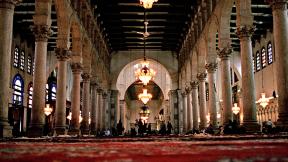
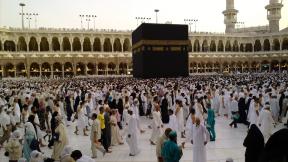
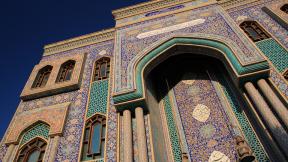
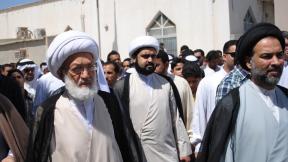


Comments
salam alaikum,indeed this article has touched on the outstanding problem facing the muslim ummah currently.my prayer is that may Allah SWT make us reason in the line you have pointed out.this is because, herein Nigeria we have started experiencing the sad and bitter clashes between sunni and shia brethren.lastly,i will want sound vision to take the initiation of promoting those aspects of the deen that unite us all as Muslims.Jazakumullah bi khair.maassallam.
Location
it is a good idea as long as we can communicate, muslim in general lack communication skills they act on emotional skills which destroys us all, are the 2 parties willing to communicate
Location
This is an essential problem to overcome for the betterment of our Muslim-Ummah, and I’d like to see SoundVision include it as a regular part of their website. Like parachutes, minds work best when open, and as we can see from the state of our Ummah-the results are devastating when they are closed!
Location
Beeing sun of a shia mother and sunni father i also pray for the success of initiatives like these.Especially my sunni brothers should take care of persons that spread opions like that shias dont believe in Quran.Good points starting with are Quran and Prophet, and if you have more courage and patience to understand the other side then the succession of the prophet. Additionally the personality of Imam Hazrat Jafar, after which the Fiqah of shias is named Jafari, who was also teacher of some Sunni Imams, i think may be of Abu Hanifa and Malik.
Location
Asalam alaiykum, this is a good job from sound vision .mayALLAH make it more easily(ameen). today the enemys of islam are capitalising on muslim disunite to tear us apart .if we do not unit then we should expect more torture from them . i happen to be a sunni and kmow that on the DAY i will face ALLAH alone to anwser those question.may our end be better than our beginning
Location
Asalam Alaekum, Sunni-Shiite dialogue is a great step toward unification of the muslim ummah. The basis of differenciation here is ideology and it is natural that we as muslims have reservations with ones who do not have share same ideology. However we should remember that the best interpreters of the Islamic ideology are Allah and His Rasul (SAW). The Imams of the various schools of thought (with due respect for there efforts and knowledge),based their various stands on Islamic issues on their respective understanding of the Quran and Sunnah, yet we have universally accepted and appreciated their efforts. This is the sought of understanding that each and every muslim should trive to condole despite the ideological differences.The spate of violence should come to an end, so as to send the message of Islam to the world, that MUSLIMS ARE ONE. Allah knows best.
Location
A very well written and consise article. It enlightens the reader and promotes the attributes of forging a unified religion. In this day and age when so many our focused on the negativity of Islam, it is vital that Shia and Sunni stand together and mend any minor differences that have been plauged both communities. It is time all peace loving people work dilgently to create a world of harmony and understanding.
Location
Well writtem proposal. However to ensure the success of a well balanced Sunni-Shia dialogue; starts with individual Muslims themselves. Growing up in Malaysia; I notice that the average Sunni (Shafi'e Mazhab) is dogmatic and lack rational thinking on the personal level. Muslims in Malaysia dare not participate in anything intellectual for fearing God's wrath. They should change. When I was in my late teens; I had the chance to befriend some excellent Shia (Shiite) friends who came to Malaysia from Pakistan to work. They have shown me that being Shias (Shiites); they were essentially God fearing and Prophet loving Muslims. It is unfortunate that the image of Shiism is generally tarnished in Sunni world. In Malaysia, it is not surprising to even hear a Sunni equating Shia Islam to Judaism - what an ignorance really! I hope a good dialogue will start soon - rather than demonizing each other; the Sunni and the Shia should come to realise that together they form the two wings of Islam. Please contact me if you are interested to pursue or continue a Sunni-Shia conversation with me. Allah bless you all.
Location
There are vested interested out side and inside the Muslim world who are spending millions to keep the two communities apart. We have extremists on both sides who do not consider that the other one is also a Muslim. After Irranian Islamic Revolutions Ayatullah Khumaini in a sermon on the TV said, Suni's have the same Quran, same Qibla, same Rasool as those of Shia's they are your brothers in Islam, but the world media did not publicise it. All we need is powerfull media coverage for all that we have in common between the two brothers.
Location
Assalamoalikum, Well thought & wonderfully jotted down. The idea is to remove the misconceptions each group has against the other which is the main basis of conflicts. Through this dialogue, it will not only clearout the differences but also help to bring the two on the right track.All the best
Location
Pages
Add new comment